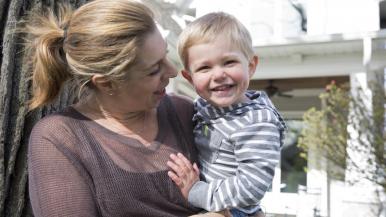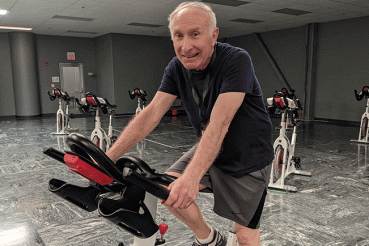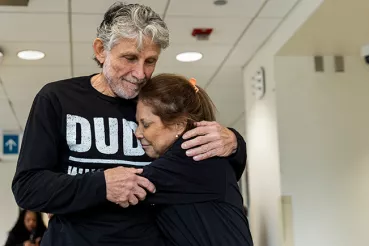After nine months of a high-risk pregnancy, Jessica Disborough arrived at Rush on a snowy Super Bowl Sunday in 2015 to deliver her son, Pierce. However, his heart rate dropped drastically during labor, resulting in an unexpected cesarean section. The delivery team discovered he had been tangled in the umbilical cord, cutting off oxygen to his system and damaging his frontal lobe.
“We quickly received the grave news that Pierce suffered two seizures at birth, and that he may have cerebral palsy and never be able to walk,” says Disborough. “One reason we had chosen Rush was for the world-class technology, having access to the top-of-the-line tools — and that is definitely what helped Pierce defy the odds that day and saved his life.”
Families like the Disboroughs receive this kind of comprehensive, compassionate and family-centered care each day through the Rush University Children’s Hospital.
The turning point of treatment
Pierce is proof positive of the difference that well-placed resources can make. The fact that his team at Rush University Children’s Hospital had quick access to advanced technology literally saved his life.
The staff at Rush resuscitated and intubated Pierce, and immediately placed him on the cooling blanket in Rush’s neonatal intensive care unit (NICU) to stop the swelling of his brain. The device decreases the temperature in an infant’s body and brain, reducing the risk of brain injury and seizures for newborns experiencing a lack of oxygen and blood flow. Rush is among a select few Chicago-area hospitals with this technology.
“It was pretty overwhelming, the amount of things they had hooked up to him, but the cooling blanket was by far one of the key factors that led Pierce to not only survive but now thrive as a healthy, active 2-year-old,” says Disborough. “I’ll always remember hearing that, if he had not been born at a top-notch hospital like Rush that had the access to that type of resource, he wouldn’t be here today.”
During his nearly four-week stay in Rush’s NICU, with the help of his nurses, therapists and psychologist, Pierce continued to defy the odds, learning to eat on his own far sooner than expected and not needing a feeding tube as initially imagined.
“What made the difference for Pierce was having access to the best care and resources available,” says Disborough.




